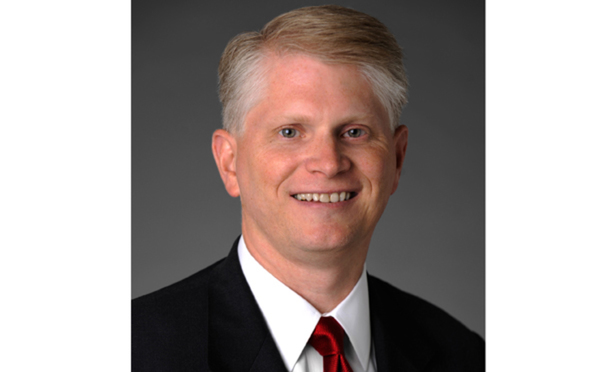 William F. Johnson
William F. Johnson Fifth Amendment Danger in Civil Cases
In his Corporate Crime column, William F. Johnson writes: Practitioners should be aware of the risk that courts will permit an adverse inference against their client in a civil case based on another person's invocation of their right not to testify, even when the client has not invoked.
November 04, 2020 at 12:45 PM
14 minute read
The Fifth Amendment to the U.S. Constitution guarantees that no person "shall be compelled in any criminal case to be a witness against himself." Courts have interpreted that protection to include a prohibition on drawing any adverse inference against a person who refuses to testify in a criminal case based on Fifth Amendment rights. Civil proceedings, however, are a different story—an adverse inference is generally permissible against a civil defendant who invokes the privilege against self-incrimination. But neither counsel nor client has any control over whether another witness or co-defendant invokes the privilege against self-incrimination, and surprising results can occur when they do.
Practitioners should be aware of the risk that courts will permit an adverse inference against their client in a civil case based on another person's invocation of their right not to testify, even when the client has not invoked. Several federal appellate courts have permitted adverse inferences to be used in this manner, including against employer entities when non-party ex-employees invoke the privilege. Counsel should be prepared to challenge such evidence on several grounds, including arguing that the generally-accepted test for application of the adverse inference has not been met, that the evidence constitutes inadmissible hearsay, and that the evidence is more prejudicial than probative and therefore inadmissible under Federal Rule of Evidence 403.
This content has been archived. It is available through our partners, LexisNexis® and Bloomberg Law.
To view this content, please continue to their sites.
Not a Lexis Subscriber?
Subscribe Now
Not a Bloomberg Law Subscriber?
Subscribe Now
NOT FOR REPRINT
© 2025 ALM Global, LLC, All Rights Reserved. Request academic re-use from www.copyright.com. All other uses, submit a request to [email protected]. For more information visit Asset & Logo Licensing.
You Might Like
View All
How Some Elite Law Firms Are Growing Equity Partner Ranks Faster Than Others
4 minute read

Law Firms Mentioned
Trending Stories
- 1Critical Mass With Law.com's Amanda Bronstad: 700+ Residents Near Ohio Derailment File New Suit, Is the FAA to Blame For Last Month's Air Disasters?
- 2Law Journal Column on Marital Residence Sales in Pending Divorces Puts 'Misplaced' Reliance on Two Cases
- 3A Message to the Community: Meeting the Moment in 2025
- 4Ex-Prosecutor Denies on Witness Stand That She Tried to Protect Ahmaud Arbery's Killers
- 5Latham's Lateral Hiring Picks Up Steam, With Firm Adding Simpson Practice Head, Private Equity GC
Who Got The Work
J. Brugh Lower of Gibbons has entered an appearance for industrial equipment supplier Devco Corporation in a pending trademark infringement lawsuit. The suit, accusing the defendant of selling knock-off Graco products, was filed Dec. 18 in New Jersey District Court by Rivkin Radler on behalf of Graco Inc. and Graco Minnesota. The case, assigned to U.S. District Judge Zahid N. Quraishi, is 3:24-cv-11294, Graco Inc. et al v. Devco Corporation.
Who Got The Work
Rebecca Maller-Stein and Kent A. Yalowitz of Arnold & Porter Kaye Scholer have entered their appearances for Hanaco Venture Capital and its executives, Lior Prosor and David Frankel, in a pending securities lawsuit. The action, filed on Dec. 24 in New York Southern District Court by Zell, Aron & Co. on behalf of Goldeneye Advisors, accuses the defendants of negligently and fraudulently managing the plaintiff's $1 million investment. The case, assigned to U.S. District Judge Vernon S. Broderick, is 1:24-cv-09918, Goldeneye Advisors, LLC v. Hanaco Venture Capital, Ltd. et al.
Who Got The Work
Attorneys from A&O Shearman has stepped in as defense counsel for Toronto-Dominion Bank and other defendants in a pending securities class action. The suit, filed Dec. 11 in New York Southern District Court by Bleichmar Fonti & Auld, accuses the defendants of concealing the bank's 'pervasive' deficiencies in regards to its compliance with the Bank Secrecy Act and the quality of its anti-money laundering controls. The case, assigned to U.S. District Judge Arun Subramanian, is 1:24-cv-09445, Gonzalez v. The Toronto-Dominion Bank et al.
Who Got The Work
Crown Castle International, a Pennsylvania company providing shared communications infrastructure, has turned to Luke D. Wolf of Gordon Rees Scully Mansukhani to fend off a pending breach-of-contract lawsuit. The court action, filed Nov. 25 in Michigan Eastern District Court by Hooper Hathaway PC on behalf of The Town Residences LLC, accuses Crown Castle of failing to transfer approximately $30,000 in utility payments from T-Mobile in breach of a roof-top lease and assignment agreement. The case, assigned to U.S. District Judge Susan K. Declercq, is 2:24-cv-13131, The Town Residences LLC v. T-Mobile US, Inc. et al.
Who Got The Work
Wilfred P. Coronato and Daniel M. Schwartz of McCarter & English have stepped in as defense counsel to Electrolux Home Products Inc. in a pending product liability lawsuit. The court action, filed Nov. 26 in New York Eastern District Court by Poulos Lopiccolo PC and Nagel Rice LLP on behalf of David Stern, alleges that the defendant's refrigerators’ drawers and shelving repeatedly break and fall apart within months after purchase. The case, assigned to U.S. District Judge Joan M. Azrack, is 2:24-cv-08204, Stern v. Electrolux Home Products, Inc.
Featured Firms
Law Offices of Gary Martin Hays & Associates, P.C.
(470) 294-1674
Law Offices of Mark E. Salomone
(857) 444-6468
Smith & Hassler
(713) 739-1250







